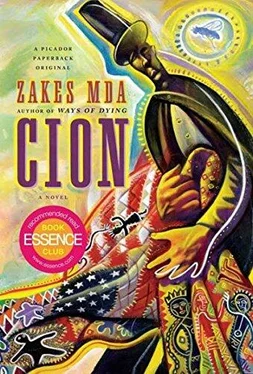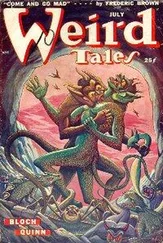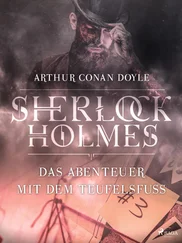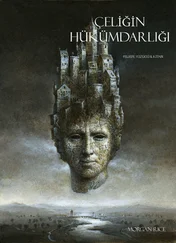
Orpah. We talk. She does not flee from me anymore. She does not go out of her way to be in my presence either. If she is not in her room, presumably drawing, she sits with Mahlon on the swing. Both are bundled in heavy coats and wrapped in woolen scarves and are wearing woolen hats. You wonder why they want to punish themselves in the freezing outdoors. She quietly stares into empty space while he smiles at his gnomes, now all covered in snow. I have not seen Orpah and her father exchange a word, except when she was agitated because Ruth had destroyed her work and he was comforting her.
Ruth and I no longer sit on the swing. Not so much because of the cold. We no longer sit together anywhere else either. Except at the table at mealtime or when we are all in the living room either watching television or a blank screen. And this saddens me. She does talk to me, when she has to, but she no longer tells me the stories of her heritage or outlines the political situation of the world for me. She is relentless about destroying Orpah’s drawings though. I have offered to hide them for her so she gives them to me. I know Ruth suspects that I am hiding them among my things. But she is too respectful of my personal property to rummage through it and destroy them. In any event I am always there when she cleans my room and I always insist on doing most of the work. All she does is remove the dust from her bottled foodstuff with a feather duster.
Sometimes Orpah and I meet. By chance. Normally in the kitchen where she makes coffee for herself and where I hang out during those times I have noted are her regular coffee hours so that I can accidentally bump into her. And we talk a little bit. Just small talk. Then she passes a new batch of drawings to me. On one occasion I try to convince her to appease Ruth. Draw the traditional patterns and show them to her mother. She will be happy and will once again allow her to use the sewing machine. She can begin by sewing traditional quilts, and then gradually mix them with her own creations. Before Ruth knows it she will be sewing her designs. But Orpah is as much of a hardliner as her mother. She will not compromise. She will not do slave patterns — or African quilts as they call them here — because she does not need to escape to any place. She adds: “Them slaves did all the escaping for me. I want to invent patterns that tell my own story. Like my music. Nobody’s gonna tell me not to play bluegrass on a sitar.”
She mentions the sitar because she knows people frown upon this innovation. I have heard Nathan make snide remarks about it, suggesting that there were some traces of insanity in the woman even though he was professing his love for her at the same time.
I tell her that she needs to do something that will prove to Ruth that her art quilts would sell. I know for certain that Ruth’s don’t sell at all. She works so hard and gets little or nothing in return. Every Saturday morning she loads five quilts on the GMC pickup and takes them to the farmer’s market at the University Mall parking lot in Athens. She displays them on railings. People come and look and say “how beautiful” and go to the next stall to buy organic vegetables. They will only talk about them when they are out of her hearing: the quilts are expertly done, but they are like any other traditional quilts. Same stitches and knots. Same Jacob’s Ladder, Bow Tie, Drunkard’s Path, Shoofly, Monkey Wrench, Wagon Wheel, Flying Geese, Crossroads, North Star, Log Cabin, Bear’s Paw that are found on other traditional quilts. Not that all these designs are found in one quilt at the same time. Only one or two of them feature in a quilt — unless it is a sampler. What may be distinctive are the combination of colors she uses and the patterns on the fabric itself. A brazen and heartless customer sometimes says directly to her that one can easily and cheaply find the same kind of quilts at Wal-Mart and they are used as mere bedcovering rather than works of art that can proudly be hung on the wall.
Every Saturday afternoon Ruth loads five quilts on her GMC and drives back to Kilvert. Once in a while she is lucky and a charitable person buys a quilt. Only once in a while. As a result she has to depend on food stamps, on the Center’s pantry and now on my contribution for room and board. When things are a bit tight — the family can’t live on the sauces and relishes that are stored in the cellar — she has actually said that I am God-sent, although she hates to be dependent on charity. When on occasion I give her more than she charges me, she is loath to take the money.
But Ruth is so steeped in tradition that even poverty will not move her to be innovative in her use of the very traditional designs. After all, many modern quiltmakers create works of art that are inspired by traditional designs but that venture into new directions. Which is what I was encouraging Orpah to do. It is the same approach that I once suggested to the women at the Center. They are steeped in tradition too. At best they make strip quilts. That’s as far as they can venture into the world of “art.” But fortunately they go beyond the slave designs in their exploration of traditional quilts. They also do quilts from other American traditions such as the Wedding Ring, the Pinwheel, the Irish Wheel, the Schoolhouse, the Diamond-in-the-Square and many others. At least they did not pooh-pooh the idea. They merely said they were going to teach me how to quilt and I could then create those so-called art quilts that I am always on about, so that they may continue in peace to make quilts the way their great-grandmothers made them.

The sitar. It’s been days since I heard it. Here it comes again tonight. Midnight. The sounds seep through the walls to my cellar. Muted. Up to now I had thought that a trumpet was able to transmit melancholy better than any other instrument. I was wrong. The sitar in the hands of Orpah achieves just as much. Or better. She has managed to make the sitar speak a new language.
I am aroused to a point of madness. I want to hear the sitar in all its glory. I wake up, put on my robe and walk outside. I stand behind Mr. Quigley’s sole shrub and begin to abuse myself, to the extent that if I was living in an earlier era I would have been committed to the mental asylum at The Ridges. I go with the rhythm of the sitar, but stop immediately when I see a dark figure appear from the corner of the wrap-around porch. It is Mahlon Quigley. He is in a period costume of some kind. He looks like a pirate of the high seas with a tricorne hat and a patch on one eye. He wears a bandolier over his shoulders and as it falls across his chest I can see that it is empty. He holds a gleaming cutlass in one hand and a tray of food in the other. He walks gingerly until he gets to Orpah’s door. He taps at the door with his sword. The music stops and my hard-on unceremoniously dies. The door opens and against the light there is Orpah still holding her sitar. Even though I can only see her outline because of the backlight she is a pirate girl in a short dress and a big hat, which is likely to be a tricorne as well. Mahlon waltzes into the room and shuts the door.
For some time there is silence. Then a lot of giggling. I walk closer to the window. Mumbling. Singing. One voice. Two voices. Male and female. Laughter. Moans. Giggling. My God! I walk away in disgust.

The next morning Obed wakes me up with a rude knock. I have a call. I grab my robe and rush to the living room. I suspect it is Beth Eddy because she is the only person who has ever called me here. It is Barbara Parsons at the Center. “I’d like for you to come to our Christmas dinner,” she says. I thank her. I was going to go in any case. Everyone in Kilvert is going. Everyone but Ruth, who is still nursing resentment against the Center women.
Читать дальше













